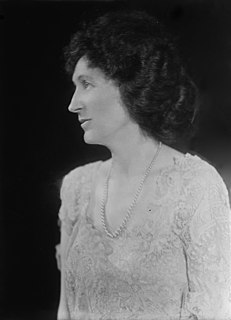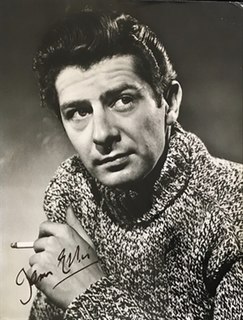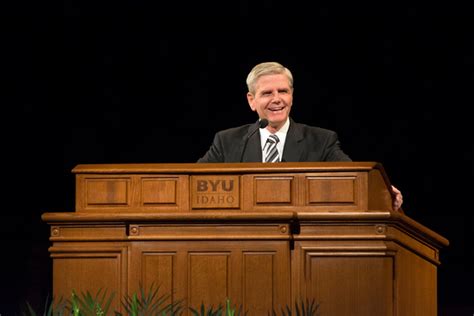A Quote by John Burroughs
One may return to the place of his birth, He cannot go back to his youth.
Related Quotes
Under our institutions each individual is born to sovereignty. Whatever he may adopt as a means of livelihood, his real business is serving his country. He cannot hold himself above his fellow men. The greatest place of command is really the place of obedience, and the greatest place of honor is really the place of service.
Then he exploded. "No!" he said. That familiar injunction. I'd heard it so many times. "No. I cannot take this steel. It would not be correct." He opened his knife drawer. "It goes here," he said, "until you return."(That's how you leave: by never saying good-bye.)And I learned that: to return. I came back the following year and the year after that. I hope to return every year (after all, I may never have the chance to learn so much), until I have no one to return to. (301)
When you control a man's thinking you do not have to worry about his actions. You do not have to tell him not to stand here or go yonder. He will find his 'proper place' and will stay in it. You do not need to send him to the back door. He will go without being told. In fact, if there is no back door, he will cut one for his special benefit. His education makes it necessary.
Man's birth is a lottery; it may be in the pleasant home of ease and affluence, or in the hut of poverty; in either case it may be a stain or an honor. If he is born in poverty, and his future life throws a lustre over an humble birth, the reward will not only be great, but his name will stand higher on the roll of honor and virtue, than he who can only boast of his proud descent.
A father may turn his back on his child, brothers and sisters may become inveterate enemies, husbands may desert their wives, wives their husbands. But a mother's love endures through all; in good repute, in bad repute, in the face of the world's condemnation, a mother still loves on, and still hopes that her child may turn from his evil ways, and repent; still she remembers the infant smiles that once filled her bosom with rapture, the merry laugh, the joyful shout of his childhood, the opening promise of his youth; and she can never be brought to think him all unworthy.
It is far. But there is no journey upon this earth that a man may not make if he sets his heart to it. There is nothing, Umbopa, that he cannot do, there are no mountains he may not climb, there are no deserts he cannot cross; save a mountain and a a desert of which you are spared the knowledge, if love leads him and he holds his life in his hand counting it as nothing, ready to keep it or to lose it as Providence may order.
The whole life of Christ was a continual Passion; others die martyrs but Christ was born a martyr. He found a Golgotha even in Bethlehem, where he was born; for to his tenderness then the straws were almost as sharp as the thorns after, and the manger as uneasy at first as his cross at last. His birth and his death were but one continual act, and his Christmas day and his Good Friday are but the evening and morning of one and the same day. And as even his birth is his death, so every action and passage that manifests Christ to us is his birth, for Epiphany is manifestation.
Every man should write a brief history of his life: his parentage, his birth, his religion, when he was baptized and by whom, when ordained, what to, and by whom-give a brief sketch of all his missions and of all his official acts and the dealings of God with him. Then if he were to die and the historians wished to publish his history, they would have something to go by.
Can man be so age-stricken that no faintest sunshine of his youth may re visit him once a year? It is impossible. The moss on our time-worn mansion brightens into beauty; and the good old pastor, who once dwelt here, renewed his prime and regained his boyhood in the genial breeze of his ninetieth spring. Alas for the worn and heavy soul, if, whether in youth or age, it has outlived its privilege of springtime sprightliness!
I do not regret my youth and its beliefs. Up to now, I have wasted my time to live. Youth is the true force, but it is too rarely lucid. Sometimes it has a triumphant liking for what is now, and the pugnacious broadside of paradox may please it. But there is a degree in innovation which they who have not lived very much cannot attain. And yet who knows if the stern greatness of present events will not have educated and aged the generation which to-day forms humanity's effective frontier? Whatever our hope may be, if we did not place it in youth, where should we place it?


































